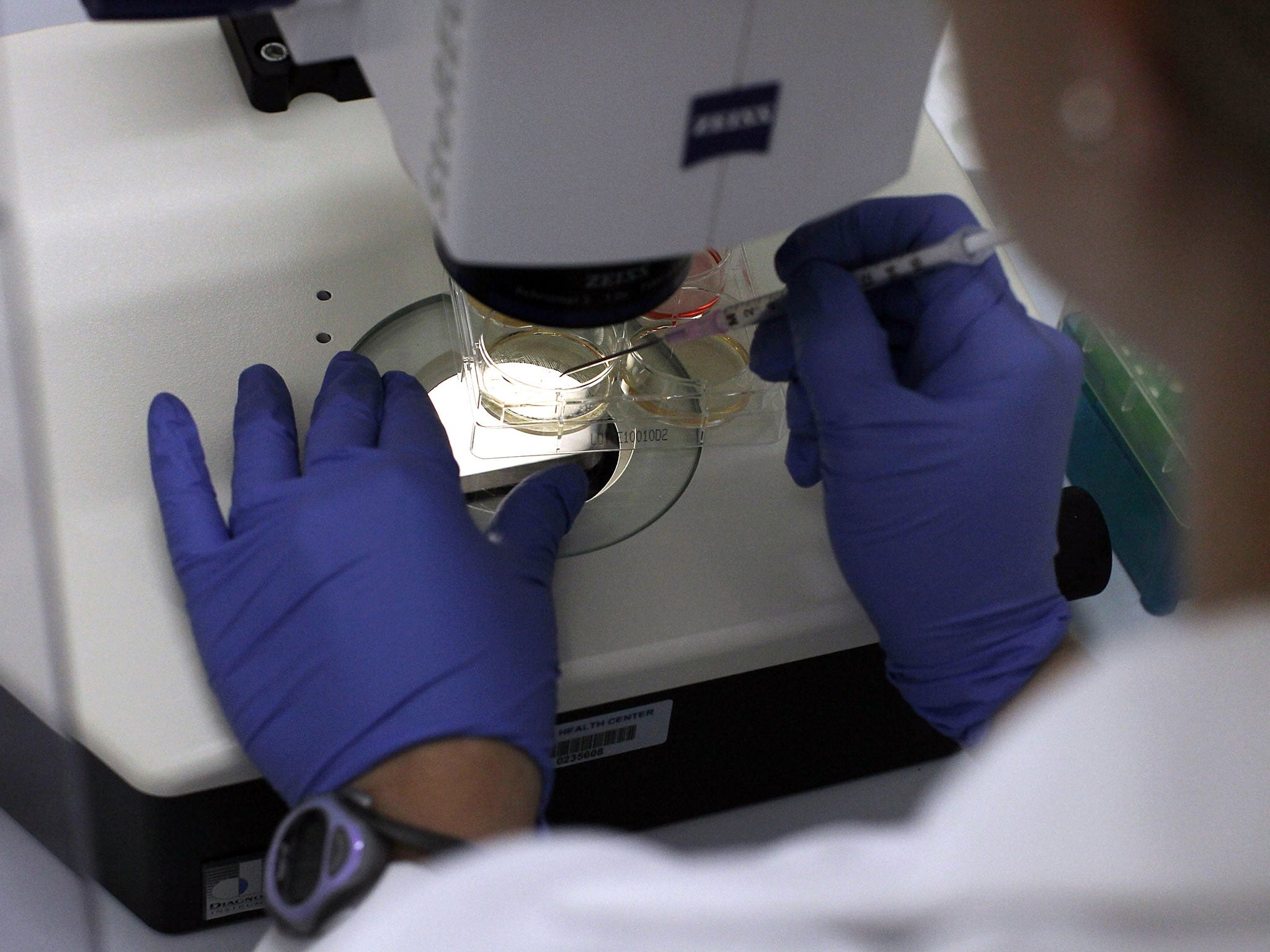New hope as surprising Parkinson’s treatment deemed safe in clinical trials
More than 150,000 people in the UK are living with Parkinson’s disease

Early clinical trials show promise for therapies that use stem cells to repair or replace damaged cells in the brains of patients with Parkinson’s disease.
While further research is needed to determine how well the treatments work, the studies which showed the therapies were safe have been hailed as an “important step forward”.
The findings also offer hope that the transplanted cells could improve symptoms of the neurological condition, according to experts.
Parkinson’s disease is a progressive condition that damages parts of the brain over many years, caused by a loss of nerve cells in the part of the brain called the substantia nigra, which makes dopamine, the hormone that controls movements and muscle tone, and also affects mood, attention and memory.
Symptoms include involuntary shaking, known as tremors, as well as slow movements and stiff muscles, but patients can also have psychological problems like depression, anxiety, loss of balance, trouble sleeping and memory issues.
The first-line treatment for Parkinson’s is levodopa, which helps increase the levels of dopamine in the brain.

However, the drug becomes less effective over time and can lead to side effects like dyskinesia, which causes abnormal movements, according to researchers.
Two separate trials explored the safety of cell therapy, which works by replenishing the neurons that produce dopamine in the brain.
In one study, led by a team in Japan, seven patients aged between 50 and 69 had “dopaminergic progenitors” – cells that have the potential to develop into dopamine-producing neurons – transplanted into both sides of the brain.
The cells, known as human-induced pluripotent stem cells, are typically adult skin or blood cells that have been reprogrammed in a lab to become like embryonic stem cells, which are found in early embryos.
Over a follow-up of 24 months, no serious problems were reported, and the cells produced dopamine without overgrowth or forming tumours, which is a risk associated with stem cell therapy.
Researchers also reported a decrease in symptoms like tremors or stiffness in some patients, although these results varied.
Another trial, led by experts in the US and Canada, involved 12 patients who had dopamine-producing nerve cells from human embryonic stem cells surgically implanted into their brains.
Five received a high dose of cells, while seven received a low dose.

The study reported that the treatment was well tolerated, with no serious or harmful reactions during an 18-month follow-up.
There was some improvement in motor function observed across both dosage groups, although this too varied.
It is estimated that more than 150,000 people in the UK are living with Parkinson’s disease.
A study published in the BMJ last month suggested global cases could more than double by 2050 to more than 25 million.
Reacting to the findings of the trials, which have been published in the journal Nature, Claire Bale, associate director of research at Parkinson’s UK, said: “Stem cell therapies hold huge promise for slowing, or even reversing, the progression of Parkinson’s as they could be used to replace lost brain cells to potentially restore lost function.
“However, making stem cell therapies a reality has proven challenging.
“From a practical perspective, growing sufficient quantities of the right kind of cells to transplant, and from a safety perspective, making sure that transplanted cells don’t cause side-effects like dyskinesia, or worse form tumours.
“It’s really encouraging to see these findings from two separate early-stage trials using different cell types.
“The results show that stem cell therapies can be delivered safely to people with Parkinson’s, and also offer hope that the transplanted cells are starting to produce improvements in symptoms.
“There is still a lot more research to do but these studies are an important step forward for stem cell therapies in Parkinson’s.”
Rosario Sanchez Pernaute, director of the Molecular Brain Lab at the Biobizkaia Health Research Institute in Barakaldo, Spain, called the trials “very well executed and very informative”.
“Both studies come from groups that have a long and solid track record,” she said, though she cautioned against unrealistic expectations for the treatments. There were limits, she said, to how effective the studies might be in a clinical setting.
The trials were both “open-label”, meaning that information on the treatments was not withheld from the researchers or participants, and both employed a relatively small number of people.
The results “allow us to be optimistic but conditional,” she added.
Join our commenting forum
Join thought-provoking conversations, follow other Independent readers and see their replies
Comments